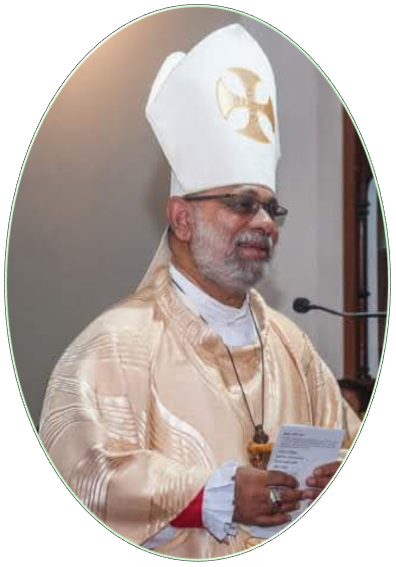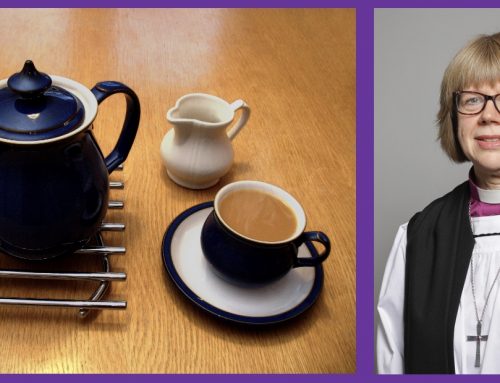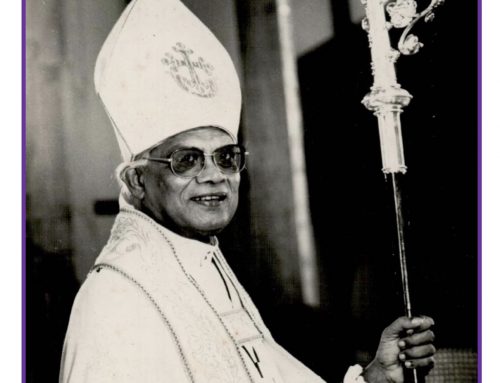Letter to the Editor:
The Anglican Communion – A way forward
Reflections on the World-Wide Anglican Communion
following the announcement of the Rt Rev’d Sarah Mullally as the next Archbishop of Canterbury

The Rt Rev’d Dr. Keerthisiri Fernando
is currently vicar in the Diocese of Melbourne, Australia
and Bishop Emeritus of Kurunagala, Church of Ceylon, Sri Lanka
– Diversity in Unity –
It is high time for all the members of the world-wide Anglican Communion to realise the true nature of the Anglican fellowship to comprehend the tensions of the 21st century. The fact that the structure of the Anglican communion is in between the Protestant and Roman Catholic churches makes matters complicated in seeking an understanding in the context of differences of opinion in various parts of the world.
The Anglican Communion has 42 provinces and a number of other national or local churches known as Extra Provincials. Each province is an autonomous church within the Communion and is led by a primate (archbishop).
Although provinces are autonomous, Anglican fellowship has four binding factors called instruments of the Anglican communion. The four instruments of the Anglican Communion that articulate its common life are: The Archbishop of Canterbury, the Lambeth Conference, the Primates’ Meeting, and the Anglican Consultative Council. These bodies facilitate communication, coordination, and shared decision-making among the autonomous member churches of the Communion, working to build understanding and unity across the global network of Anglicans.
A way forward for the Anglican Communion involves embracing its diversity while fostering deeper, person-to-person relationships and diocesan partnerships, addressing divisions on issues like sexuality and marriage, strengthening unity through shared faith and common prayer, and continuing ecumenical dialogue with other Christian traditions. There are varying perspectives on how to achieve this, with some proposing new structures, like a rotating presidency of the ACC. Others, usually conservative groups, feel existing structures have failed to uphold Scripture and are seeking to realign themselves.
Navigating Cultural Differences:
The Communion must find ways to live with profound cultural and theological diversity, particularly on issues of sexuality and marriage – and disagree well.
Focus on Person-to-Person Relationships:
Strengthening communion can be achieved through person-to-person relationships and diocesan partnerships, fostering a deeper sense of belonging and mutual affection, Anglican Communion.
Alos structural and Doctrinal Considerations
Rethinking the Instruments of Communion:
There is a call for reviewing and potentially amending the structures that govern the Communion, such as the Lambeth Conference and the Anglican Consultative Council, in order to reflect better the Communion’s nature.
Defining Anglican Identity:
Efforts are underway to refine the definition of the Anglican Communion, potentially replacing its direct relationship with the See of Canterbury with a more historical connection.
Upholding Scripture and Faith:
Some groups emphasise the need to uphold the authority and sufficiency of Scripture as a basis for a godly way forward, feeling current Instruments of Communion have failed to do so.
Mission and Witness:
Responding to Global Challenges. A way forward involves addressing urgent moral issues like climate change and advocating for sustainable practices.
Ecumenical Dialogue:
The Communion’s approach to unity extends to engaging in ecumenical dialogues with other churches, seeking to manifest the visible unity of the body of Christ.
Bishop Keerthisiri Fernando
October 2025
www.dkeerthi.com
Also published at: https://www.facebook.com/keerthisiri





